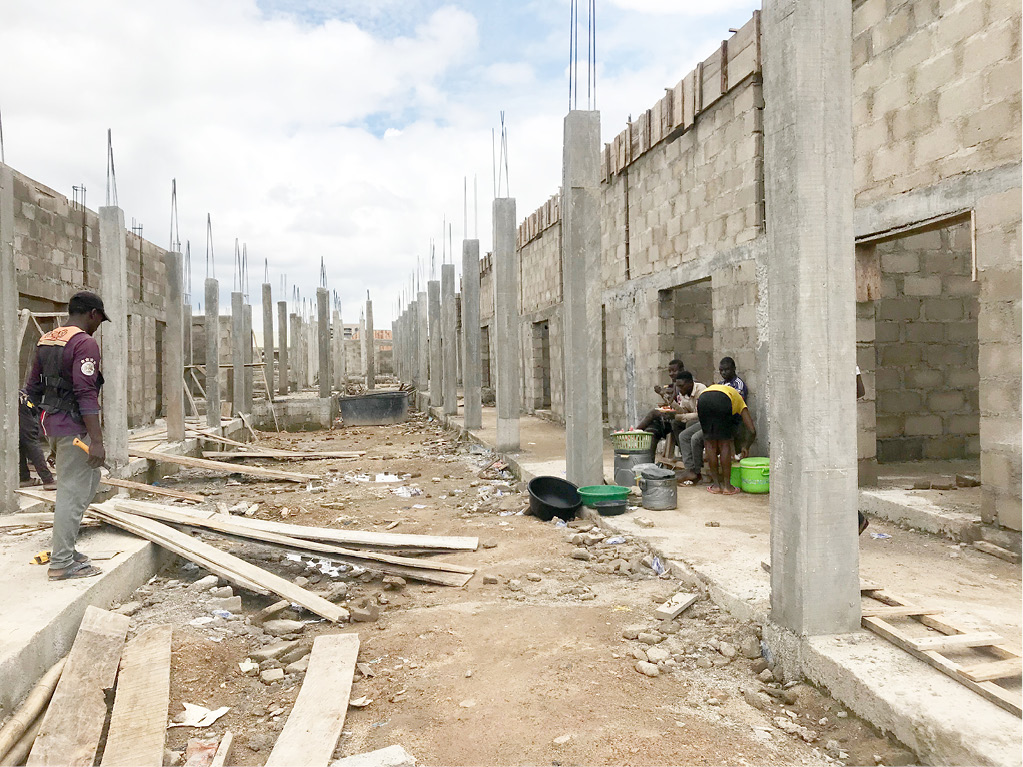Less than one year after major structures in markets in four local government areas of Kaduna State were demolished to pave way for remodelling, our correspondents went round to assess the progress of the project.
In 2019, the Kaduna State Government demolished the famous Kasuwar Magani market in Kajuru Local Government Area.
The demolition didn’t come as a surprise as a large chunk of the market had suffered the brunt of decades of ethno-religious violence.
With Governor Nasir el-Rufai’s promise to remodel all existing major markets and equip them with modern facilities, it became clear that after Kasuwar Magani, other markets would equally follow.
And so, old market structures at Sabon Gari and Dan Magaji in Zaria Local Government Area also came down.
This was followed by the demolition of the Kawo market in Kaduna North and the over 40-year-old Kasuwar Barci and Kasuwar Gwari in Kaduna South.
Our correspondents observed that about one year after the markets were demolished, they are at various stages of reconstruction, being handled by the Kaduna Markets Development and Management Company (KMDMC), through Public Private Partnership arrangement.
As at August this, the KMDMC, through its managing director, Hafiz Bayero, said it was handling about 16 market projects across the state, which would be completed by the middle of 2021.

Kasuwar Magani, which was one of the first markets to be demolished, is nearing completion and is expected to have 2,024 shops, as well as modern facilities, such as a clinic, police station, bank and fire station, among others.
Construction work at Dan Magaji market and Sabon Gari modern market in Zaria are also at various levels of block and roof work, with some of the blocks nearing completion.
At the Kasuwar Gwari, along Faki road in Kaduna South, our correspondents gathered from traders that the reconstruction of the market had slowed due to the lockdown occasioned by the COVID-19 pandemic.
The chairman of the market, Malam Abdullahi Adamu, however, said the contractor had returned to site two weeks ago and had begun reconstruction with burnt bricks.
“They reconstructed few shops and left the site.
“We have not seen them or anyone else since then, and no one has said anything to us as a market union,” he said.

He said that before the reconstruction began, about 267 shops had been demolished to pave way for government’s new model market, which is expected to offer better and modern facilities.
Government records, however, indicate that the Gwari market is expected to contain 300 shops, solar electricity, streetlights, dedicated transformer and a motor park.
“The entire market was demolished eight months ago and government promised to erect a story building, which means the number of shops will increase.
They said the shops would be as big as those they demolished, but based on the progress of the project, the new shops will not be as big as those they demolished.
But we are hoping they would complete the project within the year or early next year as promised,’’ the chairman of the market union said.
Though our correspondents did not meet the contractors on site, Malama Khadija Rabiu mai Danwake, who was seen preparing her danwake (beans dumplings) by the project site, said she once had a shop in the market before the bulldozers brought it down.
Now she sits under the sun to make her danwake, observing the work progress.
She hopes to buy one of the shops when the market is completed.
“I don’t want to go far from here. I am comfortable here as I watch the progress of the market.
“We hope they would complete it soon,” she said.
Pointing at a woman next to her who roasted corn, she said, “All of us here had shops before the demolition.
“I paid N15,000 annually for my shop. It wasn’t very big, but at least it protected me from the rain and sun.
“We hope that by the time government completes the market, we would not be short-changed.”

In March, Governor El-Rufai assured all traders who lost their shops to the market demolition across the state that they would be given the right of first refusal when the new markets are completed.
He had assured them that no trader would be short-changed in the re-distribution of shops, while no government official or civil servant would be allocated a shop in any of the markets.
At Kasuwar Barci, where the market reconstruction is still at the foundation level, our correspondents observed that traders groaned at the tardy pace of work.
They called on the state government to ensure that contractors make speedy progress for possible completion next year.
A tailor who once owned a shop in the market, Aminu Yusuf, popularly called “Professional,” frowned at the slow speed of the work in the market, saying the state government should use the same energy for demolition to rebuild the market.
“With the energy the government put in demolishing the old market months back, one would expect them to have gone far in the reconstruction.
“As you have seen, the work is still at the foundation level. For me, this is too slow and disappointing.
“We are businessmen and women and we expect the government or whoever is handling the work to be fast so we can get shops to move in,” he said.
Jafaru Madobi, who sells condiments by the roadside, said the market project was in phases.
“We were told that the market project was in phases, but as we speak, most of the traders here are not even sure if they would get their shops back, even though we were told that our traders would be considered first to buy the shops.

Honestly, with the level of work that is ongoing, traders in this market are not happy.
In fact, government shouldn’t have demolished the market in the first place since the work will be done in phases.
They should have started gradually, probably with the first phase, before embarking on the second phase.
But as it is now, we have been abandoned and waiting for the completion,” Jafaru Madobi, who sells condiments by the roadside, said.
Also, Mani Shehu, a second-hand cloth merchant said, “Recently, they asked those who had not paid their taxes to do so.
“And I wondered how we were expected to pay revenue on a demolished shop.”
Asked if he was hoping to buy a shop in the market when completed, Shehu said, “Only those with money can think of buying a shop here.
“Just look at what happened to traders at Sheikh Gumi Central Market. After they agreed to buy their shops, the prices fixed were very high.
“We fear something similar may happen to us at Kasuwar Barci by the time the new market is completed.
“As small traders, where are we expected to get such amounts to pay for shops?’’ he asked.
However, the state government said it had entered a mortgage arrangement with some banks to give traders money to purchase the shops, while the banks would hold onto the certificates of occupancy until their mortgages are liquidated.
El-Rufai had described the re-payment plan as flexible as it would take five years to liquidate the mortgage, adding,” The principle is that instead of paying monthly rents, the shop owners will now pay these monies to the bank in order to offset the mortgage.”

Despite this arrangement, some of the traders said they feared inconsistencies in government policies, adding that another administration could decide to revoke the arrangement.
“There are policies that were made by past governments and this governor decided to change them.
“How sure are we that another government will not do the same?
“As traders, we will be left with debts, we will lose money and still lose the shops if another government decides to change the policy,” said Ezekiel Ambros, who sells fish at Kawo market.
Unlike Kasuwar Barci where the market project is on its foundation level, blocks of shops and pillars have taken over the site at Kawo, which was pulled down sometime in February.
It was observed that where the old market structure once stood has now been replaced by structures that will be converted to banks, abattoirs, fire stations and administrative blocks.
The engineer on site, Abdulrahman Ibrahim, told Daily Trust that the rains had slowed down the pace of work, but assured that they would do their best to see to the completion of the project by 2021.
He said drainages in the form of walkways would be constructed around the market, which would have eight gates for entry and exit points.
For the construction company, PowerHill Construction Ltd, the major challenge since the demolition and reconstruction of Kawo market has been the refusal of more than half of the traders to relocate to the temporary market it constructed at GGSS, Kawo.
“Tuesdays are the worst days for us because they are usually market days.
“The roads leading to the market construction site and its surroundings are always congested on Tuesdays, and as such, it makes it difficult for us to move in with materials.
“Sometimes we have to engage the services of security agents to help disperse people and control the traffic,” Abdulrahman said.

 Join Daily Trust WhatsApp Community For Quick Access To News and Happenings Around You.
Join Daily Trust WhatsApp Community For Quick Access To News and Happenings Around You.


